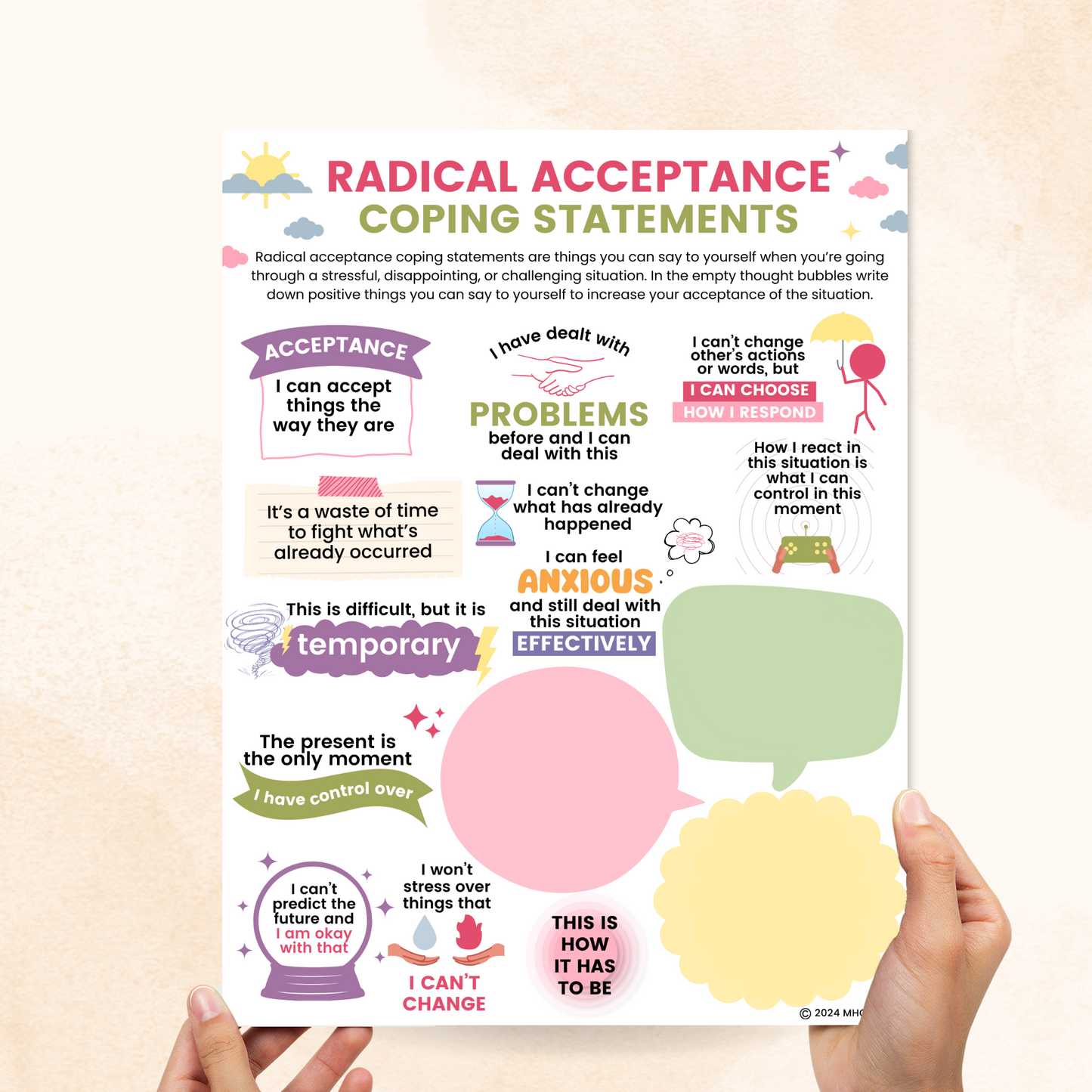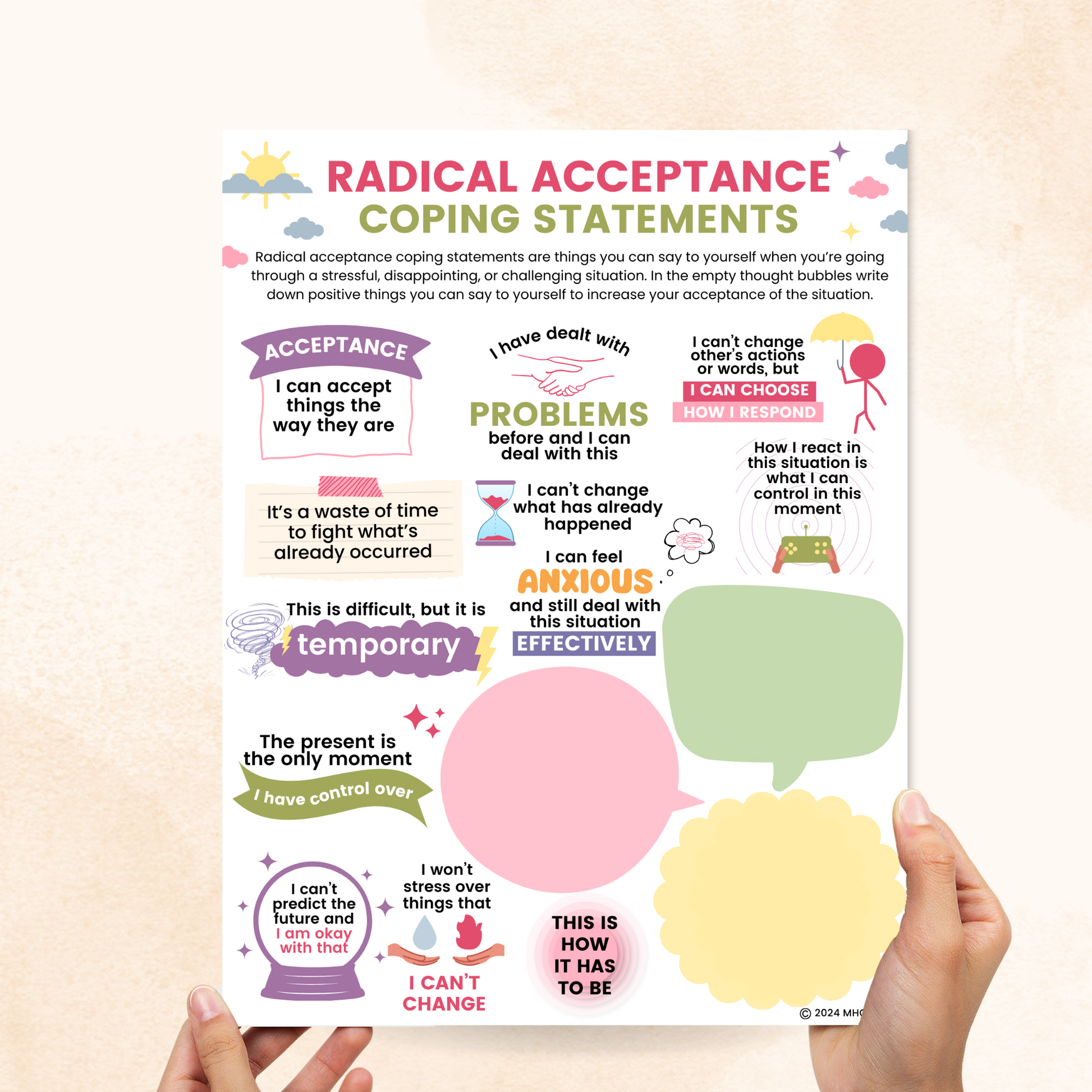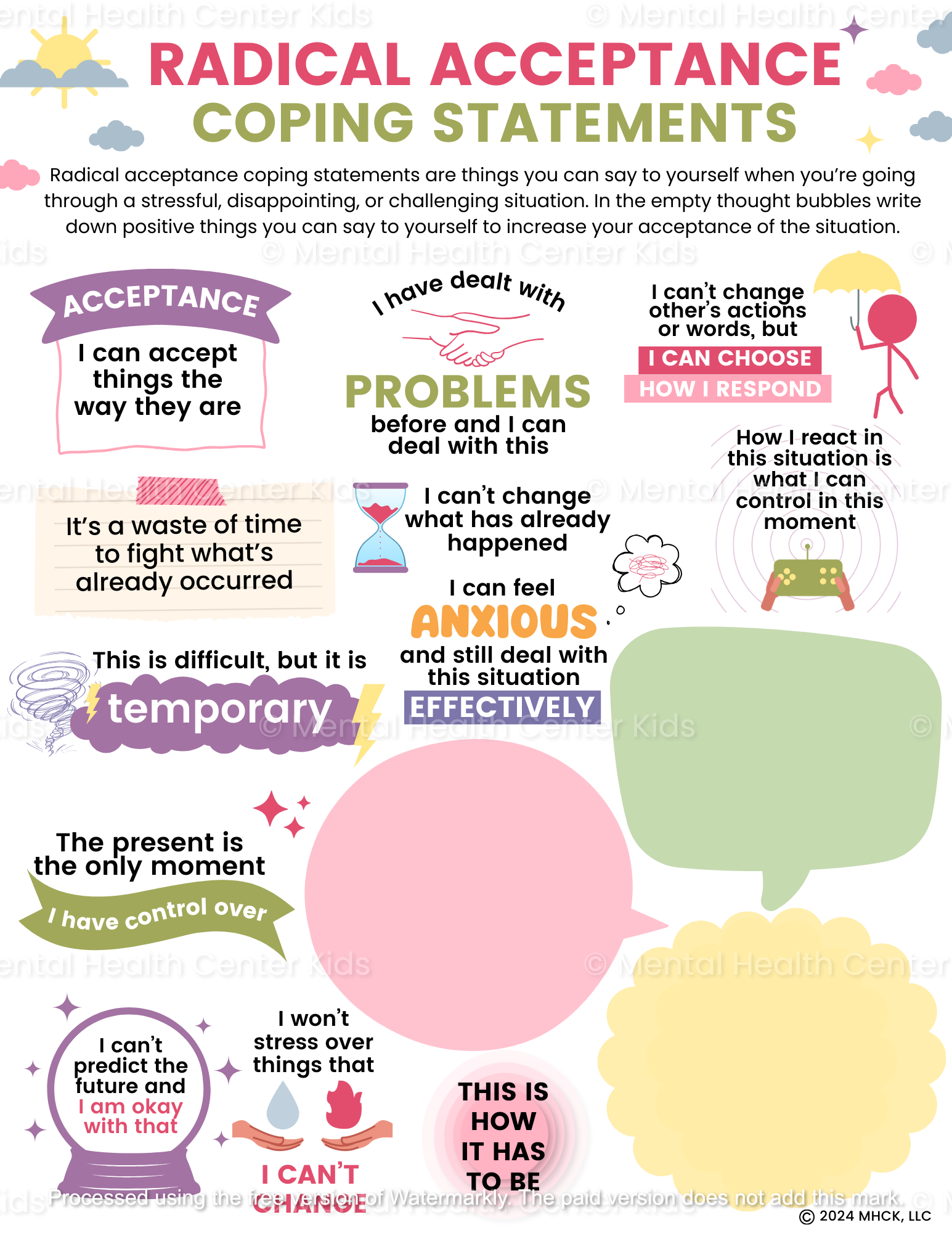Radical Acceptance Coping Statements Worksheet


Radical acceptance coping statements serve as affirmations to accept reality as it is. Since they offer important reminders during times of distress, repeating them allows a person to have a more optimistic perspective. These statements are often used in Dialectical Behavior Therapy (DBT).
The Radical Acceptance Coping Statements Worksheet includes positive coping statements, such as “I can’t change what has already happened,” and “I can feel anxious and still deal with this situation effectively.” It also includes three empty thought bubbles for clients to write down their own coping statements to increase acceptance of a situation.
As young people reflect on the statements on the worksheet, they can have an increased awareness of their stress response and explore coping skills. Users are encouraged to keep the worksheet in a visible place as a helpful daily reminder. It’s okay to revise coping statements from time to time so they remain relevant.
This worksheet can be added to our Radical Acceptance Coping Statements handout to explore more positive coping statements.
*This item is an instant digital download. A link to download your files will be emailed to you once payment is confirmed.
Want more resources like this? Check out our full catalog of DBT worksheets and handouts.
References:
- Paulhus, D. L., & COUÉ, E. (1993). Bypassing the will: The automatization of affirmations. JMS, 4, 1.
- Demarin, V., & Moroic, S. (2014). Neuroplasticity. Periodicum biologorum, 116(2), 209-211.
- Linehan, M. M. (2014). DBT skills training handouts and worksheets. Guilford Publications.
- Critcher, C. R., Dunning, D., & Armor, D. A. (2010). When self-affirmations reduce defensiveness: Timing is key. Personality and Social Psychology Bulletin, 36(7), 947-959.Wood, J. V., Elaine Perunovic, W. Q., & Lee, J. W. (2009). Positive self-statements: Power for some, peril for others. Psychological Science, 20(7), 860-866.
- Instant digital download
- File: Fillable PDF
- Size: 8.5" x 11"



